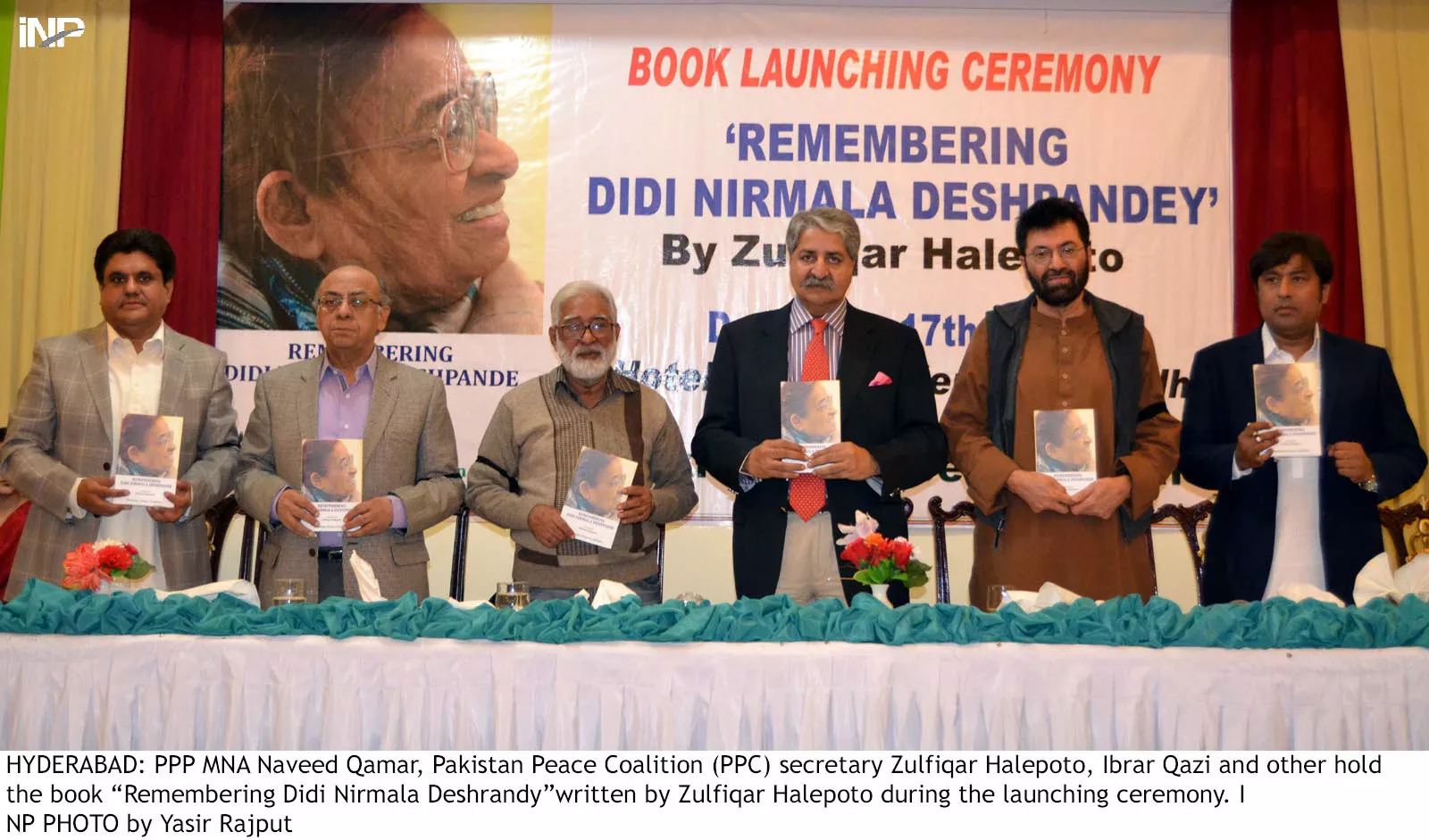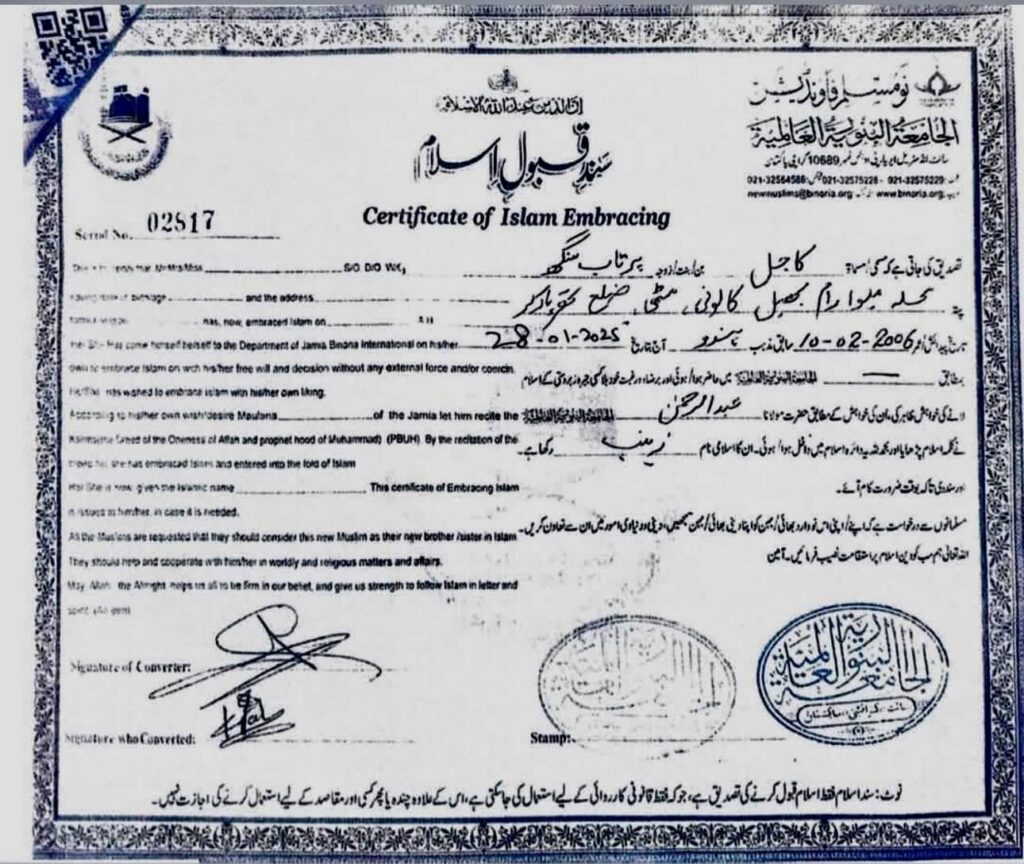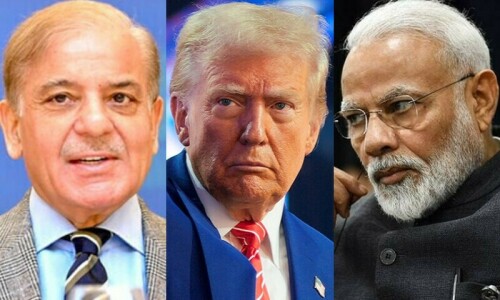India-Pakistan tension escalates. Many of the subcontinent’s residents are left wondering what seasoned peace activist Karamat Ali would have done in reaction to the current crisis in view of growing military tensions between Pakistan and India.
Military Tensions Approach Sensational Levels
Dawn broke today with disturbing reports of Indian airstrikes targeting both Azad Kashmir and places inside Pakistan’s declared boundaries, flooding social media and Pakistani broadcast networks.
India targeted six sites in Pakistan, said Pakistan’s military public relations office (ISPR). In response, the Pakistan Air Force allegedly destroyed a Heron combat drone in addition to five Indian aircraft—three Rafale jets, one MiG-29, and one Sukhoi aircraft.
Under what it claims to be “Operation Sindoor,” India has claimed credit for attacks at nine sites, allegedly targeting what India terms as “terrorist infrastructure” in Pakistan and Pakistan-administered Kashmir.
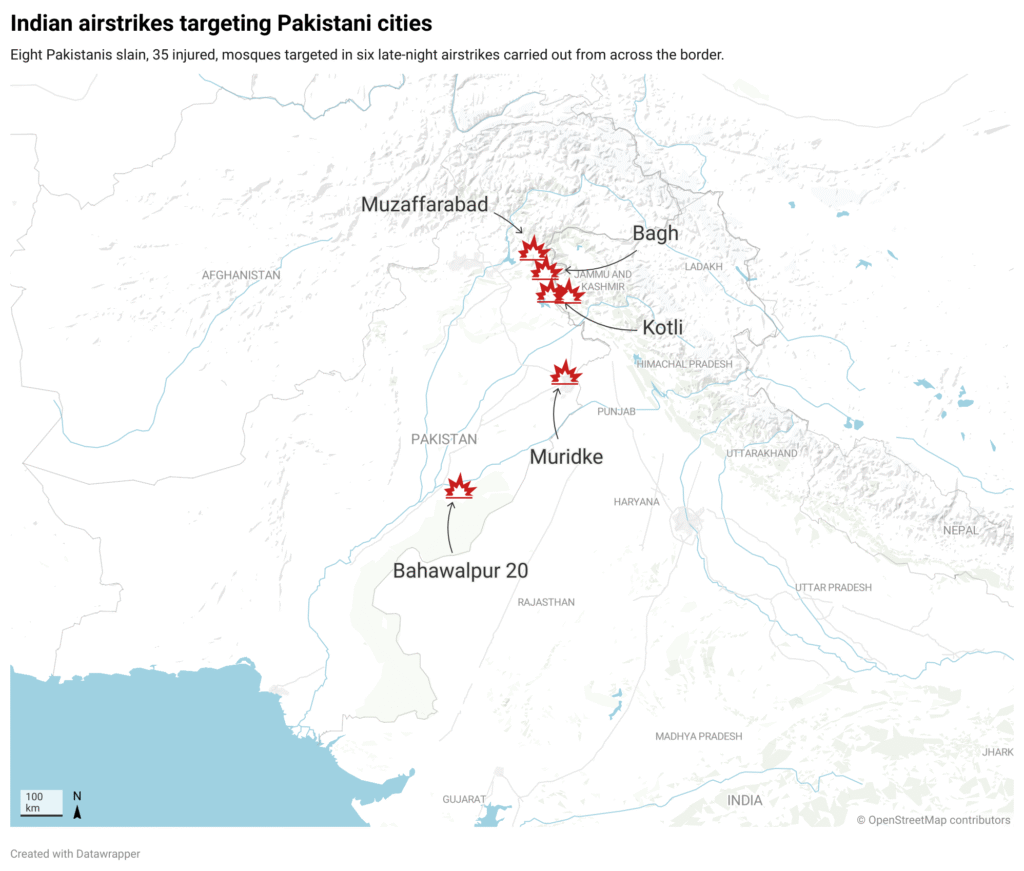
A Crisis Long in Formation
Weeks of declining diplomatic ties between the nuclear-armed neighbours, especially following the April 22 Pahalgam massacre in Indian-held Kashmir, where militants attacked visitors, led to this deadly escalation. India credits the attack, which it links to the Pakistan-based group Lashkar-e-Taiba, with 28 civilian casualties and more than 20 wounded.
Following this, India announced its departure from the decades-old Indus Waters Treaty and took the unprecedented action of cancelling all visas for Pakistani nationals. Pakistan responded with its ‘tit-for-tat’ actions, including prohibiting Indian aircraft from flying over Pakistani territory.
The Lost Voice of Harmony
One feels the absence of notable peace advocates like the late Karamat Ali of Pakistan and Didi Nirmala Deshpande in these unfriendly surroundings. Though many peace activists are still alive, the drumbeats of war have muffled their voices.
Having worked closely with Karamat Ali at the Pakistan Institute of Labour Education and Research (PILER) from 2009 to 2021 and kept a friendship until his death in 2024, I can only imagine his reaction to today’s events. By now, he would have been at the Karachi Press Club aggressively promoting de-escalation and communication.
A Lifetime Committed to Cross-Border Harmony
Karamat Ali was instrumental in establishing many peace projects, including the Pakistan-India People’s Forum for Peace and Development (PIPFPD) and People’s SAARC, a larger network spanning all eight South Asian countries. Even when official relations soured, his relentless dedication to promoting people-to-people contact between Indians and Pakistanis was evident.
He visited India often until 2019; his in-laws live in New Delhi. However, once India decided to abolish Kashmir’s special status, which seriously damaged bilateral relations, these visits became almost impossible. The only option for him to meet his wife and only son outside Pakistan, mostly in Europe.
His desire for regional collaboration was best shown at the last People’s SAARC in Kathmandu in November 2014, when he recruited a strong Pakistani delegation of trade unionists and peace activists. He intended to hold a later People’s SAARC in Pakistan in 2016, but the official SAARC Summit was cancelled because of India and Bangladesh’s refusal to attend; hence, this event never took place.
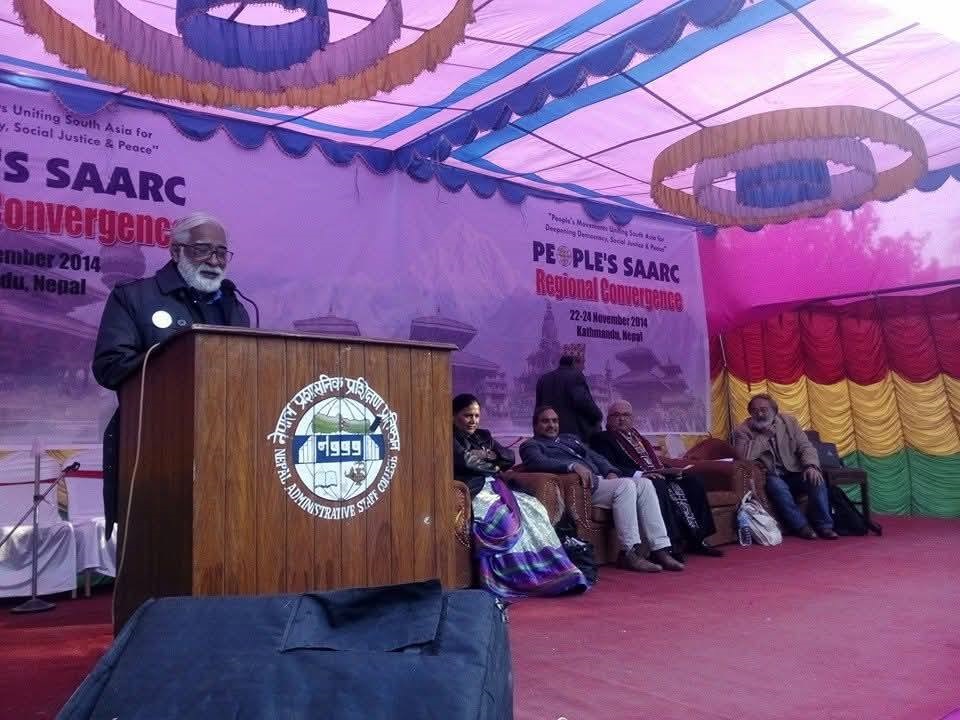
Origins in Partition, Heart in Unity
Karamat Ali was personally quite committed to South Asian unity. Originally from Eastern Punjab started living with his parents in Sita Road, a small town in Sindh’s Dadu district, as his family had moved from Eastern Punjab after the Partition. He frequently related how homes left abandoned by rich Hindus who had fled to India were distributed to migrant families.
One narrative he often related showed the complexity of those times. When he questioned residents why they hadn’t occupied empty Hindu homes, they said, “Those are left for our ‘Muslimeen’ brethren.” Though Ali was not a native Sindhi speaker, he was deeply attached to Sindh and thereafter fervently argued for the rights of Sindhian peasants.
Legacy of Material Influence
Beyond the peace movement, Ali’s efforts produced real benefits for underprivileged groups. One such instance was his backing of the Issa Kaskheli Goth people of Sanghar district. They were being displaced from their ancient hamlet by a strong landlord of the area, who was also politically influential, asserting possession of their residential lands.
The educated young of Kaskheli Goth disobeyed Wadera’s commands and informed him that the village is identified as a school, as the land is government-owned. Starting their demonstrations from Sanghar, the villagers arrived at the Hyderabad Press Club but were not able to get media attention. Karamat Ali welcomed the villagers from Sanghar and Hyderabad to Karachi, lodging them at the PILER Centre, and provided transportation to daily demonstrations at the Karachi Press Club. At last, their ongoing campaign raised national awareness of their situation and succeeded. The Sindh government accepted the villagers’ demand, thus their right to shelter was upheld. You can also find further information in the daily Dawn’s story written by my ex-colleague Zeenat Hisam.
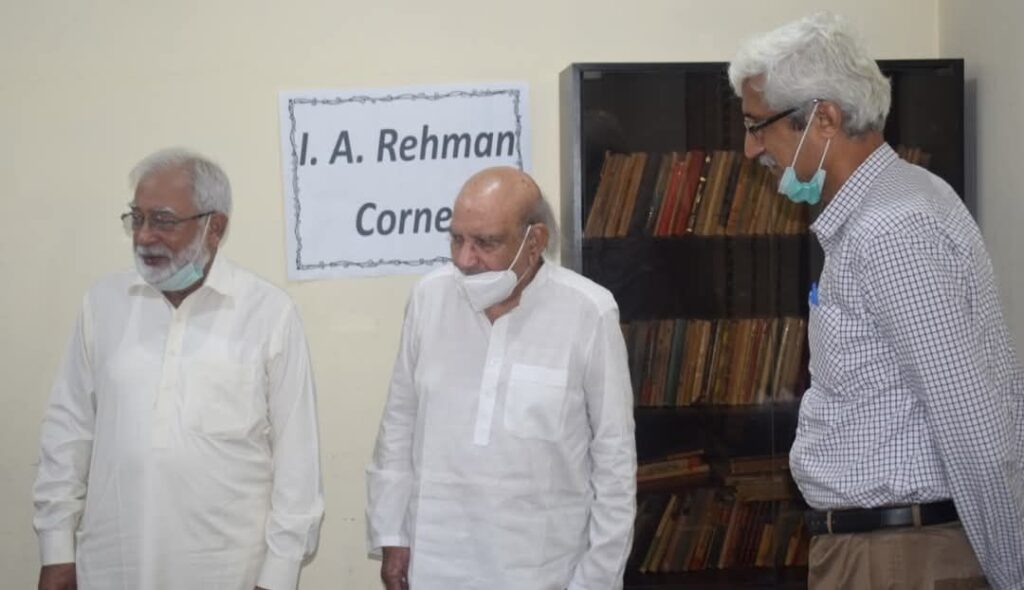
A Voice So Sorely Missed
Karamat Ali had absolutely perfect credentials as a peace activist and labour rights advocate. A PILER founder and executive director, he was instrumental in the 1970s labour movement. Having graduated from Karachi University with a Master’s in Labour Studies from the Institute of Social Studies in the Hague, he wrote many academic papers on labour and peace topics.
Ali’s departure is felt especially in the current crisis since he was a founding member of the Pakistan Peace Coalition for Peace and Development and the Pakistan-India People’s Forum for Peace and Democracy. Though he may no longer be with us, his ideas and method of handling conflict provide insightful direction in these trying circumstances.
If he were here right now, Karamat Ali would surely tell us that the road to enduring peace is not via armed confrontation but rather via communication, understanding, and the acceptance of our common humanity beyond boundaries. There are numerous memories while working with him and leading many campaigns, I proudly cherish contributing something to the peace in South Asia.
[The author worked with Karamat Ali at PILER from 2009 to 2021]
Photo courtesy: Daily Express Tribune

